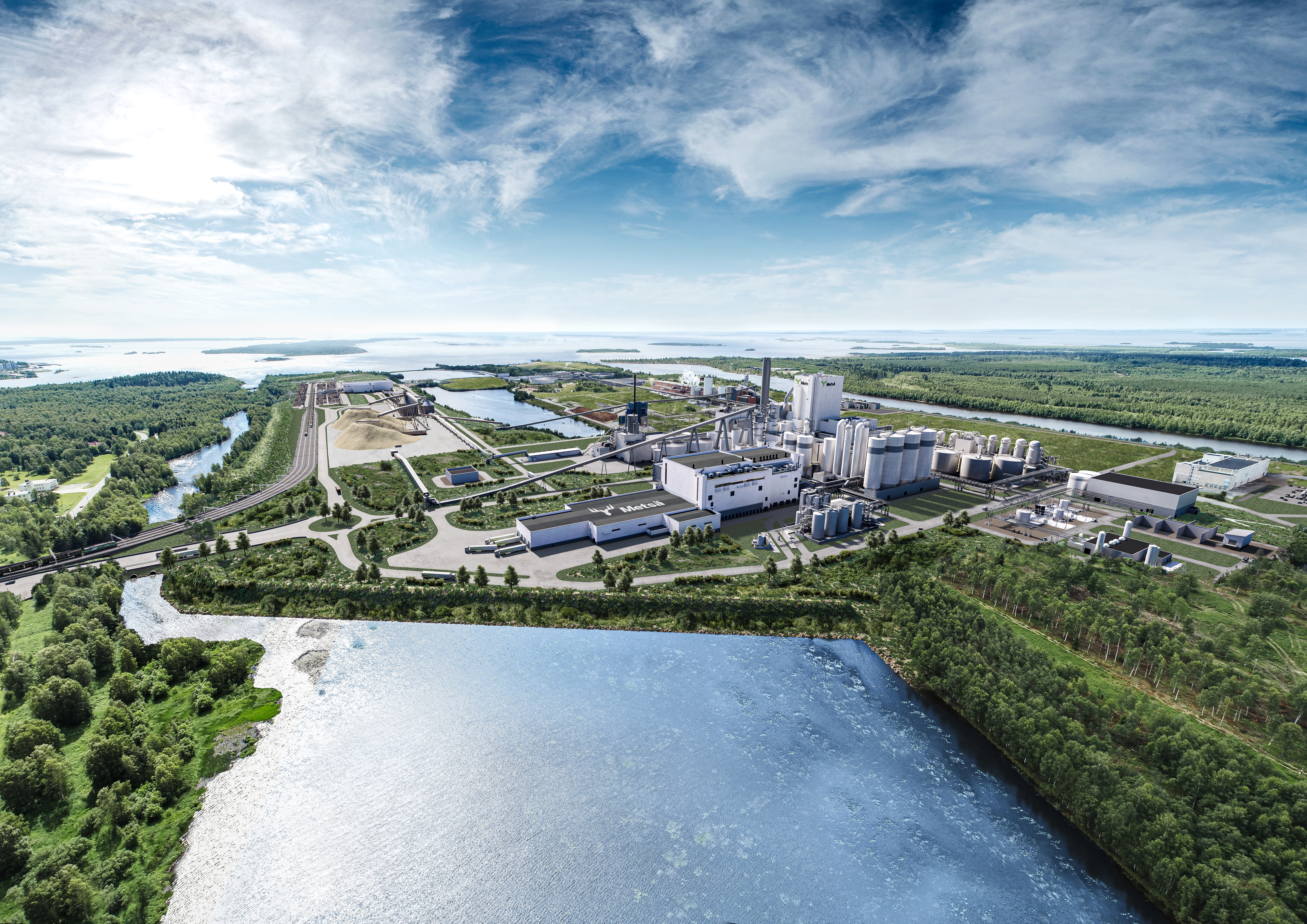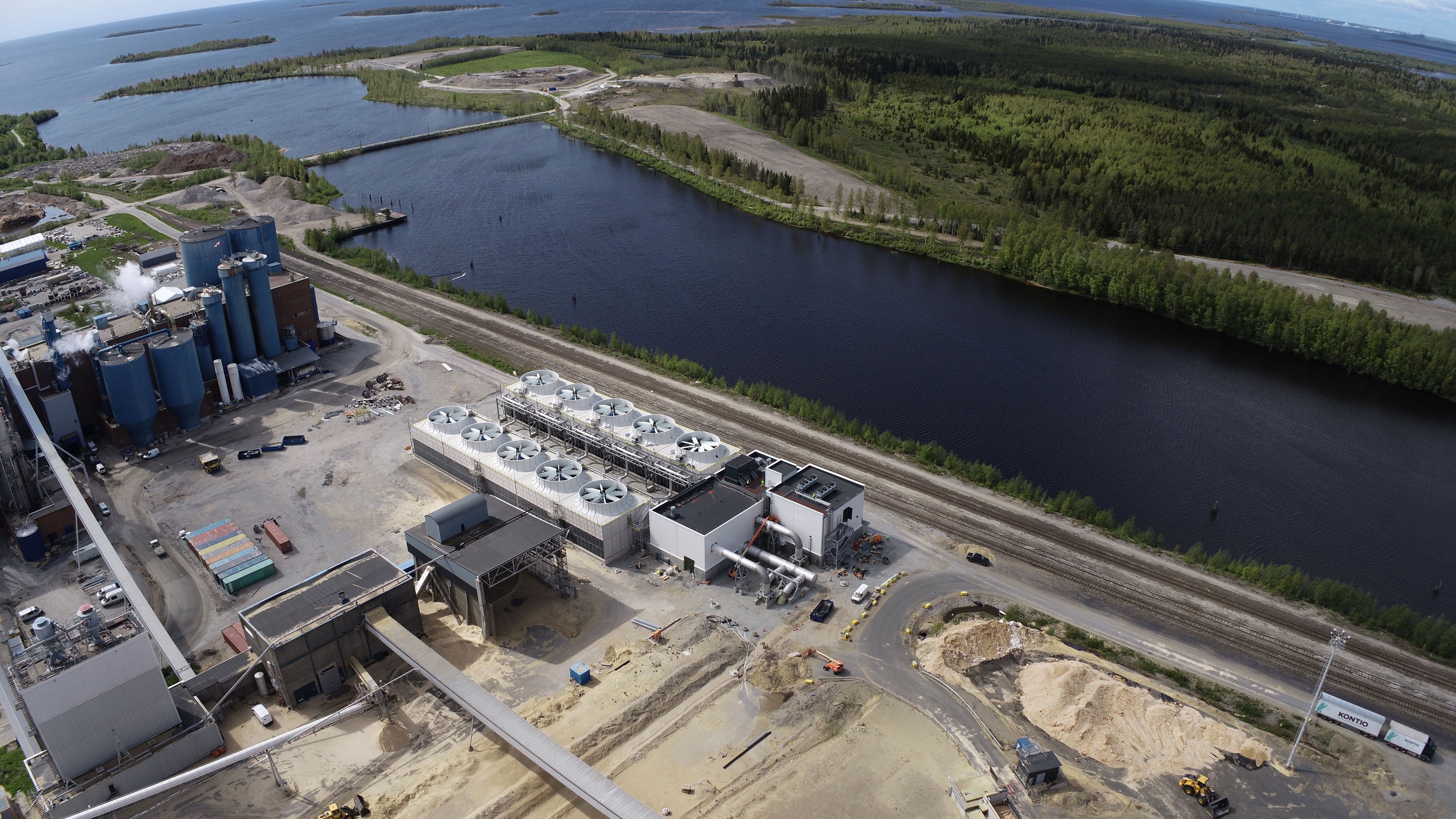The cooling water towers at the Kemi bioproduct mill are over 11 metres high. They were built in two series of five towers, partly on the site of an current pulp mill. The cooling water cycle is pressurised with water from the mill’s new water plant.
“The cooling water circulation for the towers is a closed system. The chemically purified water comes from our water plant and is circulated to all sections of the mill to heat exchangers where clean cooling water is needed. The return cycle comes back warm to the cooling towers, where the heat is removed to the ambient air and the cooled water is returned to the departments after filtration”, says Metsä Fibre's Senior Manager Mikko Toikka.

The Kemi bioproduct mill is the first Metsä Group mill to have such a large closed cooling water cycle for clean water. The cooling water is not discharged directly into the water body, but the cooling towers minimise the heat load to the sea. The Kemi bioproduct mill is located on the shores of the Bothnian Sea, which had to be taken into account in the design.
“From the very beginning, the design of the new mill was based on the principles of completely fossil-free production and top environmental performance. Already during the project planning phase, local residents raised concerns about the increasing heat load in the water body and its possible impact on the ice situation.”
The closed cooling water cycle does not increase the heat load to the sea, although the pulp production capacity is 1.5 million tonnes per year, more than double that of the previous mill. Local residents are able to walk on the ice of the Bothnian Sea in winter as before, as the new mill has no impact on the ice situation of Kemi. Despite the clear increase in production, the new bioproduct mill remains below the emission limits of the old Kemi pulp mill's environmental permit
The world's most efficient
The bioproduct mill’s process operations are efficient and have been designed using the best available modern techniques.
"The Kemi bioproduct mill is the most efficient northern softwood pulp mill in the world and it contributes to Metsä Group's ambitious sustainability goals, including completely fossil-free production and reduced water use."
The mill's internal water circulation is efficient and, together with the cooling water circulation, enables the raw water intake from the Kemijoki River to remain at the same level as in the old mill. In a closed cycle there is always some water loss, which means that additional replacement water has to be run.
The wastewater treatment plant at the Kemi bioproduct mill also has cooling towers that cool the wastewater entering the plant, mainly in summer, to the temperature required for aeration.
The cooling water towers, like the whole plant process, are operated from a central control room with a shift capacity of about 12 people. Staff training started well before mill's start-up and all equipment suppliers also hold their own training sessions. Environmental training is also a natural part of the training of the operating staff.
The water treatment plant, raw water station and wastewater treatment plant were commissioned in spring and summer 2023. The new bioproduct mill started up in September 2023.

